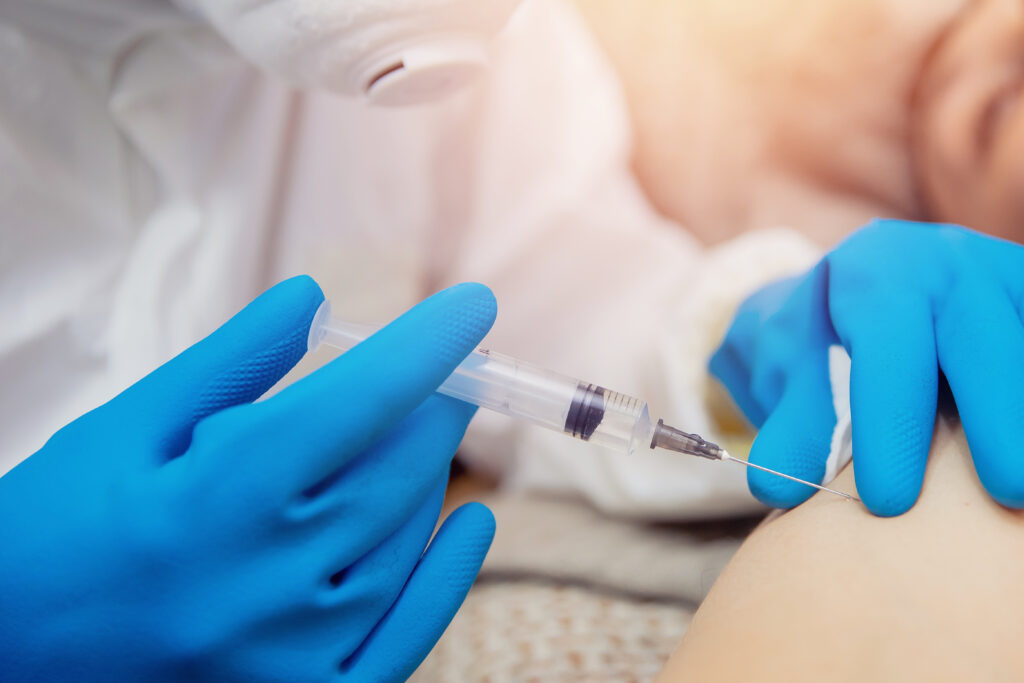A key advisory panel to the U.S. Food and Drug Administration (FDA) has unanimously supported a flexible approach to selecting coronavirus strains for the next Covid-19 vaccines, opening the door to updated or existing formulas for fall 2025.
Meeting on Thursday in a public session, the panel of scientific experts agreed that the FDA should have room to either maintain current vaccine compositions or shift to newer strains better matched to circulating variants. The decision is designed to ensure timely delivery of shots for the next respiratory virus season.
However, several committee members raised concerns that this flexibility could delay access for some age groups, especially if updated vaccines require additional approvals.
Strain Changes May Impact Vaccine Rollout
During the meeting, Dr. Sarah Meyer of the Centers for Disease Control and Prevention (CDC) asked how the FDA’s recently announced vaccine approval framework would influence this year’s rollout.
“If we pick a new strain, will that trigger a requirement for new clinical trials?” Meyer asked.
Dr. Jerry Weir of the FDA’s Division of Viral Products responded that while regulatory details fall outside the scope of the current discussion, the main priority is to choose the strain that offers the best protection. “The rest can follow,” he added.
Uneven Approval Rules by Age Group
The FDA has introduced different approval paths depending on the recipient’s age and health condition. Adults over 65 and individuals with high-risk medical issues will likely receive updated vaccines using a process similar to that used for flu shots.
But healthy children and younger adults face a longer road. Any new strain targeting these groups must first go through placebo-controlled clinical trials—an effort that requires more time and investment.
Dr. Stanley Perlman from the University of Iowa raised the concern that this could lead to slower vaccine availability. FDA officials acknowledged the uncertainty, with Dr. David Kaslow of the FDA’s Office of Vaccines Research and Review stating, “We don’t expect this process to delay delivery, but timing is always a challenge.”
JN.1 Family Chosen for Fall 2025 Protection
Despite debate over regulatory timelines, the committee was in agreement about the biological target for the vaccine. Experts supported focusing on the JN.1 family of coronavirus variants, which drove most infections during the previous winter.
Though JN.1 itself is no longer circulating, its genetic descendants—including KP.2 and newer offshoots—still make up the majority of current Covid cases. Vaccines built using JN.1 or KP.2 have shown strong performance in lab studies.
The World Health Organization recently backed the use of both variants in upcoming single-strain vaccines, noting that either would offer meaningful protection.
Producers Push for Newest Strain: LP.8.1
Vaccine manufacturers also weighed in during the FDA session. They presented data showing that vaccines based on LP.8.1, a newer subvariant of JN.1, may produce even stronger immune responses than those based on older strains.
Dr. Hayley Gans, a Stanford pediatrician, advocated for using the LP.8.1 variant in future vaccines. “We must stay ahead of the virus,” she said. “Let’s not chase it. Let’s lead.”
Her view was supported by Dr. Eric Rubin of Harvard University, who said, “We’re not just picking a strain for today, but for the months ahead when the virus may look different.”
Dr. Kaslow confirmed that the FDA will soon decide which strain will form the basis of the 2025–2026 Covid-19 vaccine, allowing companies enough time to begin production and distribution.
The panel’s support gives the agency the green light to move forward under its new rules, balancing speed, safety, and scientific evidence.
The FDA’s updated strategy reflects a broader shift in pandemic response—one that prioritizes adaptability and targeted protection. With evolving variants and changing risk levels across age groups, officials are working to ensure the vaccine keeps pace with the virus.
More updates are expected in the coming weeks as the FDA formalizes its plans and manufacturers ramp up preparations for fall.


